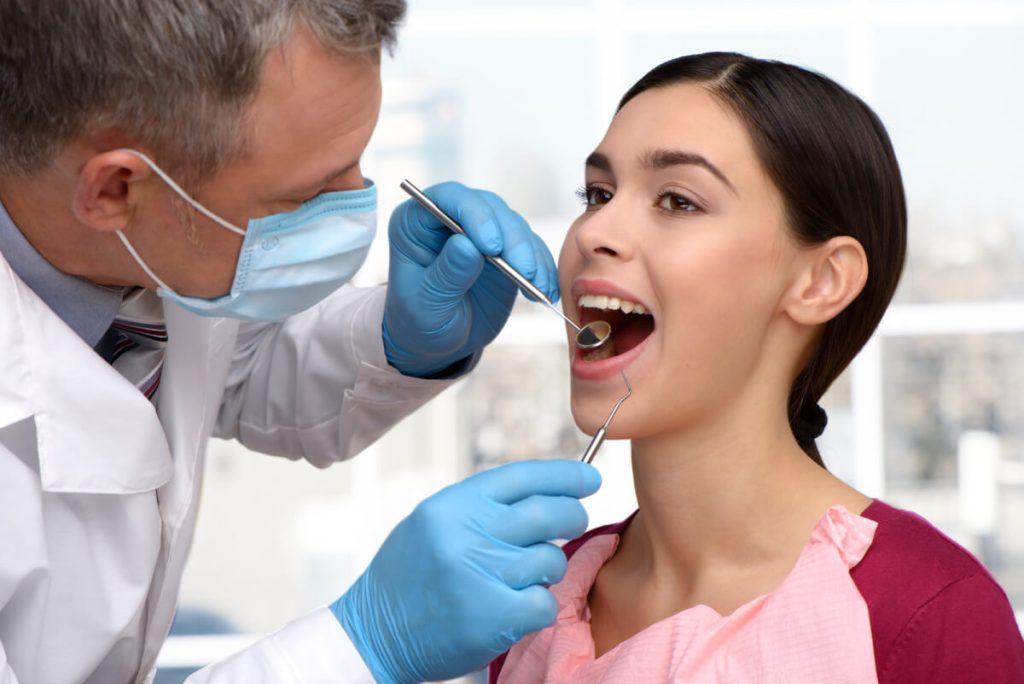Early detection is crucial in the fight against oral cancer, and regular oral cancer screenings play a vital role in achieving this. These screenings are painless examinations conducted by dentists or doctors to check for signs of cancer or precancerous conditions within the mouth. By identifying abnormalities at an early stage, oral cancer screenings significantly increase the chances of successful treatment and improve overall patient outcomes. During an oral cancer screening, the dentist will visually examine the inside of your mouth, looking for red or white patches, sores, or any other unusual changes in the tissues. They will also feel the tissues in your mouth and neck for lumps or bumps. Some dentists may utilize additional tools to aid in the screening process. Toluidine blue dye, for instance, can highlight areas with a higher risk of being cancerous, while fluorescent light visualization can differentiate abnormal tissues from healthy ones.
There is not currently a single, standardized screening test for oral cancer. However, the comprehensive examination conducted by a dentist during your regular checkup serves as a highly effective screening method. The American Cancer Society recommends that everyone over the age of 20 receive an oral cancer screening during routine dental visits and view the page https://www.dentistredmond.com/bellevue/sedation-dentistry/. For individuals with heightened risk factors such as tobacco use, excessive alcohol consumption, or a family history of cancer, more frequent screenings, possibly annually, may be recommended. Early detection of oral cancer offers a significant advantage in terms of treatment options and success rates. When caught in its early stages, oral cancer is often highly treatable with a good chance of complete cure. Treatment options for early-stage oral cancer may involve surgery to remove the cancerous tissue, followed by radiation therapy or chemotherapy, or a combination of both. These treatments, while potentially demanding, are generally well-tolerated and produce positive outcomes.

However, if oral cancer progresses to later stages due to delayed detection, the treatment course becomes considerably more complex and the prognosis less favorable. Advanced oral cancer may necessitate more extensive surgery, possibly leading to functional impairments and a significant impact on a patient’s quality of life. Additionally, the success rates for treating late-stage oral cancer are lower compared to early-stage cases. Incorporating regular oral cancer screenings into your dental routine is a wise decision for maintaining good oral health and ensuring early detection of any potential issues. By being proactive and getting screened, you empower yourself to take control of your health and increase the likelihood of a favorable outcome in case of oral cancer.
Familiarize yourself with the normal appearance of your mouth, and be mindful of any persistent changes, such as lumps, sores, or white or red patches . If you notice any abnormalities that do not heal within two weeks, schedule an appointment with your dentist to get it checked promptly. In conclusion, oral cancer screenings are a vital tool for early detection of this potentially life-threatening disease. By undergoing regular screenings, you significantly improve your chances of successful treatment and a positive prognosis. Remember, early detection is key – be proactive about your oral health, and do not hesitate to speak to your dentist about any concerns you might have.